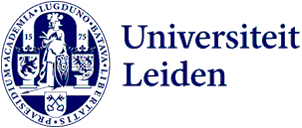
Personnel Monitor: ‘Time to make your voice heard’
All Leiden University staff will receive an invitation on 17 October to fill in the Personnel Monitor. Why is it important that everyone completes it? And what has happened with the results of the last Personnel Monitor? Vice Chairman of the Executive Board Martijn Ridderbos explains.
Why is it important to fill in the Personnel Monitor?
‘The Personnel Monitor is an important way to keep an ear to the ground in the organisation. You want to know what’s going on. We do this all the time, but the Personnel Monitor is an important way to make your voice heard. The results will show how we are doing as a university but also how your faculty, institute or department is doing. For example, whether we are following the right path with our Strategic Plan (Innovating and Connecting) and what our experience of leadership is in realising our plans. We can also use the Personnel Monitor to see if we’ve made the right improvements in areas that were at play the last time. And we can get a good idea of new issues. If everyone completes the Monitor, we’ll be able to get the full picture of this and will be able to discuss this together.’
Is anonymity guaranteed?
‘An external agency (Effectory) collects and analyses all the data. They make sure everything remains anonymous. We get a report for the whole University and per faculty and department unless it might be possible to trace the results back to individuals. Within an organisational unit, reports are only made about specific groups if this group comprises at least 10 members of staff and five of these have responded. It’s also important that as many staff as possible fill it in.’
What was done with the results of the previous Personnel Monitor?
‘As the Executive Board we think it is important that the feedback we receive is taken seriously. It should be discussed and followed up on. We also ask the different faculties and expertise centres how this should be followed up in our meetings with them.’ Based on the results of the previous Personnel Monitor, we spoke to them about work pressure, dignity and respect, and career development, for instance, and have adopted various measures.
To reduce work pressure, we have made extra money available from our reserves. This made it possible to hire more people. Leiden Research Support was also started, to help researchers in their work.’ With regard to dignity and respect, we’ve expanded our network of confidential counsellors and have continued to ensure that it is easy to access this network. We now have a general point of contact for staff who don’t know where to turn. A new ombuds officer for staff has also been appointed. As for career development, we started the training for institute managers in 2018 because we saw from the monitor that this was what this group needed. We’ve also started developing ideas on the subject of leadership so that we can continue to build on an open and learning community.’
Which topics will this year’s Personnel Monitor focus on?
It will focus on three topics this year:
- Engagement and commitment
- Work options (work facilities, working from home, blended teaching etc.)
- Well-being and work pressure (dignity and respect, desired versus actual workload, overtime and compensation, causes of work pressure, vitality)
- Inclusion (equal treatment and the ability to be yourself)
- Sustainable careers (opportunities for growth, mobility and development)
- Extra questions for PhD candidates (supervision, development, training, careers).
How do we ensure that as many staff members as possible complete the Personnel Monitor?
‘We’ll provide a weekly update on the response rate and are calling on all managers to devote time in their team meetings to make people aware of the importance of completing the Monitor. Healthy University is sponsoring a prize for the team with the first (almost) 100% response rate. They’ll receive a visit from a mobile barista with coffee, tea and healthy smoothies. But above all, I hope that everyone will see the importance of filling in the Monitor and will actively discuss the results with their colleagues and managers.’
